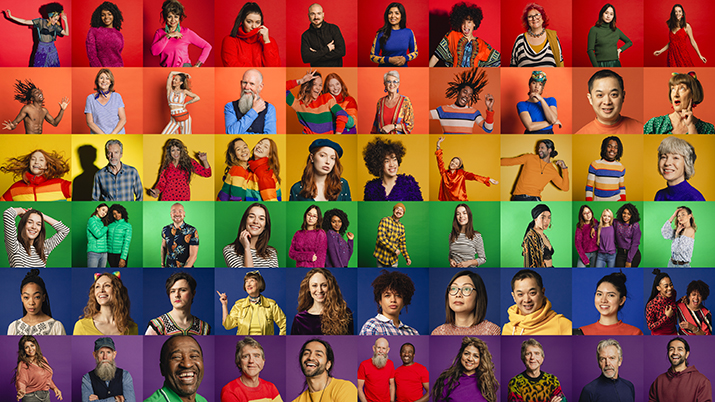HAPPENING AT THE UN
INTERNATIONAL DAY OF HAPPINESS
«That all men are created equal, that they are endowed by their Creator with certain inalienable Rights, that among these are Life, Liberty and the pursuit of Happiness. That to secure these rights, Governments are instituted among Men, deriving their just powers from the consent of the governed». If it wasn't a passage from the United States Declaration of Independence, adopted on July 4, 1776, it would be like reading a science fiction book. But the US is not the only country to contemplate the pursuit of happiness. It was established in the 2008 Constitution of Bhutan as a fundamental objective of the state, in addition to the promotion of peace, prosperity and national unity. The same goes for the Fundamental Charter of the Samoa Islands, of 1960, while the United Arab Emirates goes even further since there the State must «guarantee the happiness» and «the well-being of citizens».
At this point we need to agree on what it means to "be happy". And it is slippery ground, since the concept is difficult to define objectively and may be interpreted in different ways depending on the cultural and political context in which we find ourselves. For this reason, celebrating «International Day of Happiness», on March 20 every year since 2013, is more complicated than it seems. The date was established by the United Nations General Assembly through an initiative presented by Bhutan, which put the constitutional principle into practice by recognizing the value of national happiness as higher than that of per capita income. When the news of the small Himalayan kingdom of Asia provides economic data to just under 800,000 citizens, it not only speaks of Gross Domestic Product, the GDP that makes Western economists lose sleep, but also of Gross National Happiness (GNH), a parameter unknown to the market.
Seen from this perspective, the International Day is beginning to take shape as it provides not only a state of psychophysical well-being for the individual, but also a political aspiration to pursue. The central question is: what do we need to be happy? We certainly need economic security, but this seems more of a prerequisite rather than the final goal.
One of the first scientific studies on the subject was conducted in 1978 by two psychologists, Brickman and Campbell, who examined the psychological adjustment of people who had won the lottery compared to those who had suffered a serious injury. The results showed that the two groups, a few months after the event, had very similar levels of satisfaction.
In 2010, however, a Harvard University psychologist, Daniel Gilbert, found that people tend to overestimate how much a positive situation, such as winning something or getting a prestigious job, affects their long-term happiness. It seems that lottery winnings affect our well-being less than small daily activities, such as spending time with friends or seeing family members. A more recent study, conducted in 2020 by a group of scientists at Stanford University, investigated the relationship between happiness and health. Experts have found that those who are happy tend to be in better physical and mental health than those who are not. The data is clear: lower blood pressure, better heart function and more brain activity.
In short, we end up spending our whole lives looking for happiness where there is none to be found and we fail to grab it when it passes right under our noses. If there wasn't scientific data, it would seem like the moral of a bad Christmas movie, where everyone argues for an hour and a half at grandma's and in the end, they discover that it's actually "the little things" that count. That's not exactly the case: "little things" only matter if you already have a home, food, running water, perhaps even hot water, a school not too far away and an acceptable life expectancy. But once all this has been achieved, one must be very careful when desiring more, as there is the risk that the dream will come true and in doing so expose our absolute inability to be happy.
According to the UN, we need to work in two directions: in the poorest states so that everyone has what they need, in the rich countries so that they avoid pursuing the superfluous as their sole purpose in life. In short, to go to dinner with friends you can also take the bus, you don't really need a helicopter.
Some countries that have incorporated the right to pursue happiness into their constitution are working on it, others are not.


Shopping at Paro weekend market, Bhutan






